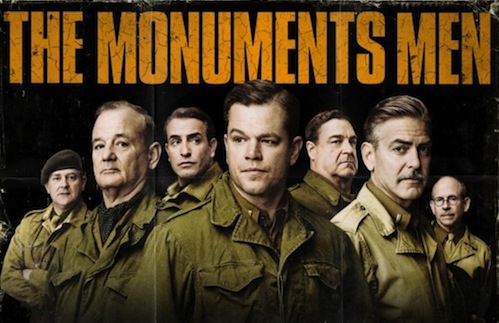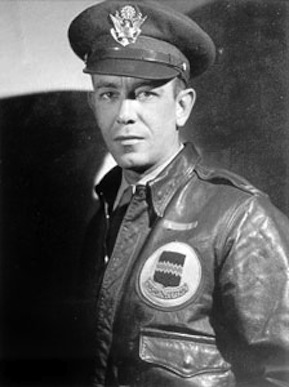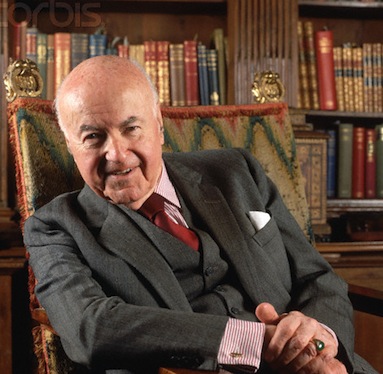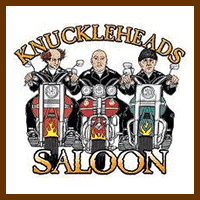 There’s a movie coming out in February starring George Clooney called “Monuments Men.”
There’s a movie coming out in February starring George Clooney called “Monuments Men.”
It’s based on a non-fiction book about the U.S. Government’s efforts to recover art looted by the Nazi’s during World War II, “The Monuments Men: Allied Heroes, Nazi Thieves, and the Greatest Treasure Hunt in History,” by Robert M. Edsel.
The book describes how an elite group of specialists (American and British museum directors, curators, and art historians) was formed into a military unit charged with ferreting out and bringing back the cultural patrimony purloined by noted aesthetes like Luftwaffe chief Hermann Goering. The movie version (which also stars Cate Blanchett, Matt Damon, and Bill Murray) is a fictionalized depiction of those men and women who did work of such critical importance while the war raged around them.
I was looking up the background of Laurence Sickman, the longtime director of the Nelson-Atkins Museum of Art, and learned he was such a hero. Sickman had already worked for the Nelson for 10 years at the time of America’s entry into World War II. He helped create the core collection at the gallery, including Caravaggio’s “St. John The Baptist” (1602), made possible by an 11 million dollar bequest from the William Rockhill Nelson Estate (I’m sure “the Colonel” would be thrilled by The Star’s current day obsession with breaking up “concentrations of wealth!”)
Thirty-five years ago I was fortunate enough to have dinner with Mr. Sickman when he told me a fascinating story from that era. He was in China in 1939 when war broke out in Europe. An English friend, Harold Acton, left to join the Royal Air Force and asked him to send all the Oriental art he had collected back to England.
Sickman made an executive decision that the wiser course was to send the collection from Beijing not to Europe but to Kansas City! He figured that as a citizen of a neutral country he would have a better chance of safe-guarding the collection rather than sending it into a war zone.
Acton, whom I met through Sickman, was furious at the time. It turns out to be a brilliant decision because all Acton’s Oriental art sat out the war in the basement at 45th and Oak. All Acton’s European art, by contrast, left at his parent’s home in Italy (where I met him in 1979), was looted by the Nazis and he spent the next twenty years trying to get it back.
The movie is a tribute to people like Laurence Sickman, whose courage and initiative in war was as impressive as his scholarship and discernment in times of peace.












Thirty five years ago? I can’t even remember what I had for lunch yesterday!
So sick of hearing about the ‘greatest generation’, ha.
Be of good cheer balbonis. Membership in that over rated club is in preciptous decline. We make way now, for a new crop of intrepid, learned and perspicacious soldiers to shoulder the load, unburdoned with any transgenerational vistiges of those lugubrious losers. Bad optics are no doubt responsible for hagiographical efforts from misguided souls who dream of our freshly remembered past.
Let us all now, with the benefit of hindsight, assess correctly and accordingly that blood spilled in a misguided effort, a fantasy and a trick of fame.
Suffused daily in a pentacost of agitprop, Americans will soon hear no more, the stories of the “Greatest Generation”.
Cheer up.
I really don’t understand this attitude. With so many World War II vets passing from the scene who wouldn’t want to read about their sacrifice and heroism ? In the last few years I’ve read obits in The Star that tell again and again of extraordinary things done by ordinary people,i.e. surviving Pearl Harbor, D-Day,Iwo Jima, The Battle of The Bulge, and prisoner-of-war camps. Don’t we owe those people a modicum of respect and recognition?
+1
I owe them nothing. Fetishizing these stories only helps to promote the 13 year long losing war we have convinced ourselves we are winning.
We got that honey poured in our ears for 40 years now from that generation. The Vietnam era kids had to hear from that ‘greatest generation’ how they weren’t good enough. Funny how time tends to forget the bad and remember the good.
So no. Not really interested in this tale, which will tell us lazy slackabouts how TGG “saved art”.
The fact that this particular story is only being told now,almost seventy years after the events in question,would seem to refute the charge of anyone “fetishizing”it. I also don’t see how honoring those who served their country against Germany and Japan is somehow a sly endorsement of our government’s policies in Vietnam,let alone in Iraq or Afghanistan.
I don’t know whether you saw my earlier post where I described coming out of a movie theatre after a showing of Steven Spielberg’s “Saving Private Ryan”.One of the two young men ahead of me as we filed out turned to his friend and said,”Remember,all those people died for nothing!” It sounds like you share that sentiment.I don’t.
If you can’t see why a Hollywood tale of the humanity of soldiers trying to save art in the face of war is a Pro-War movie, then you are not as smart as you try to appear in your columns!
I think the WWII stuff is a little tired. I am sick of all the back patting and congrats for a war that was 70 years ago.
There is a reason movies like The Hurt Locker and Zero Dark Thirty get some of their funding from rather *interesting* sources. It keeps the rosters up with fresh meat for the unending war.
This is one of those comments that benefit from the cowardice of anonymous commenting.
TGG fought totalitarianism while the current collection of trash in this country seems to embrace it. Perhaps that’s why Mr./Ms./It doesnt appreciate their efforts
According to our correspondent,anything that depicts what a war is about is”pro-war”. I guess,then,that “The Diary of Anne Frank” or “Schindler’s List”are hymns to the glories of war.I’m also struck by the delusional quality of some of his other comments about the WWII generation “pouring honey into the ears” of the younger generation. My own experience is that the veterans who had the most harrowing experiences of combat were the most reluctant to talk about the war. They also,not surprisingly,were the ones who didn’t want anyone else to have to go through what they did. Finally,he tips his hand,when he talks about the “interesting” funding sources for two recent films. It doesn’t take a genius to see the anti-semitic overtones to that innuendo.Stomper.are you listening?
One has to balance those who left the farms and factories to fight with the government which openly and actively accepted war criminals onto their payroll following the war.
The young men and women who were drafted in WWII came from all walks of life. Rich, poor, ne’r do-wells and the famous.
Like the Marine sargent who stopped his men from taking the gold teeth of enemy soldiers killed. He told them he could not allow them to do something which they would regret the rest of their lives.
Like Joe Bill Tilliotson, my father’s lifelong friend, who almost lost his feet during the Battle of the Bulge. He never talked about the sacrifices he made nor the battles in which he fought.
Gen. Smedley Butler wrote a book, War is a Racket, where he exposed the US military as an arm of American business interests. Used them to put down citizens protesting the practices of Boston Fruit in Central America .
“War is a racket. It always has been. It is possibly the oldest, easily the most profitable, surely the most vicious. It is the only one international in scope. It is the only one in which the profits are reckoned in dollars and the losses in lives. A racket is best described, I believe, as something that is not what it seems to the majority of the people. Only a small ‘inside’ group knows what it is about. It is conducted for the benefit of the very few, at the expense of the very many. Out of war a few people make huge fortunes,” said Butler. He was twice awarded the Medal of Honor.
http://en.wikipedia.org/wiki/War_Is_a_Racket
Our fathers and grandfathers were merely corner boys for American business interests.
What they did and what they were told they did were vastly different things.
Amen Orphan, Amen.
Now pass me the Beecher’s Bibles and the ammo.
the ‘greatest generation’ sure did use the N-word a lot.
Mr. Sutherland, I believe I might have met Mr. Sickman, if indeed, he was a very hyperactive guy who would stop and ask people if they liked this piece or that. In addtion, I went to an auction at the Nelson, where some Chinese artifacts belonging, I think, to an estate of a WWII member of the Flying Tigers were on sale. I purchased an ink drawing of a Zen figure representing long life. Proudly framed it, hung it and some 25 years later, a Chinese friend of mine said, and I quote, “Jesus, Chuck, you moron, it is upside down.”
A more serious regret, is that, for $200.00, I could have purchased the gentlemen’s “Blood Chit” jacket and I passed. I am indeed a moron.
>According to our correspondent,anything that depicts what a war is about is”pro-war”. I guess,then,that “The Diary of Anne Frank” or “Schindler’s List”are hymns to the glories of war.
Yeah, that’s exactly what I said. The fact that you miscategorize it shows you know it has merit. Otherwise you would address it on it’s face.
Now lets hoist another one to the war machine and The Greatest Generation that helped grease the wheels. HUZZAH GET YO WAR ON
Ze propaganda war machine never stops.
“If you can’t see why a Hollywood tale of the humanity of soldier trying to save art in the face of war is (is not?)a Pro-War movie,then you are not as smart as you try to appear in your columns!” That was the operative quote from our buddy “Moleskin”. Apply the same logic to Schindler’s List:”If you can’t see why a Hollywood tale of the humanity of a businessman trying to save Jews in the face of war is not a Pro-War movie than you are not as smart as you try to appear to be in your Replies!”Apply the same logic to the 1985 Richard Chamberlain movie about Raoul Wallenberg, the Swedish aristocrat who saved thousands of Hungarian Jews from the Nazis:”If you can’t see why a Hollywood tale of the humanity of a diplomat trying to save Jews in the face of war…. “Any depiction of humanity in the face of war could be said to be pro-war by that way of thinking. Two,George Clooney was an outspoken and fierce opponent of the George W. Bush administration for trying to impose regime change on Iraq(just as he’d been an outspoken and fierce critic of the George H.W. Bush regime for NOT imposing regime change on Iraq after the first Gulf War, i.e. “Three Kings”). Political fool that he is I’m sure he would not have leant his name to any film project glorifying war.
Thanks Dwight. I wish Balbonis would jump in here to either defend himself or clarify his comments but I feel compelled to make a point. Mainly because when you called him out and accused him of being anti-semitical you then closed your comment by asking if I was listening. When Balbonis made the comment about funding from “interesting” sources, the movies he referenced were The Hurt Locker and Zero Dark Thirty. Much more recent military involvements than the WWII movies you used in your response ( Schindlers List and The Diary of Anne Frank) which have the obvious tie to Judaism. As a tribesman, I didn’t take offense by his examples but certainly would have seen a more likely connection had he used your examples. I guess only he knows whether he was referring to Jews when he mentioned “interesting” sources. If he was and I’m just naive, then carry on. My thought was that he was referring to the “military-industrial complex”. Balbonis ???
Other than that, I liked your piece and was offended by Balbonis’ comments about not owing TGG anything.
Just sayin’
The players in the military industrial complex( General Dynamics,Martin-Marietta, Blackwater Security,etc) do not provide funding to Hollywood movie projects. I’ve spend time looking at all the left wing sites and publications. The Pentagon has a film office that provides technical advice and help to Hollywood but it was pulled in the case of The Hurt Locker because they didn’t like the message glorifying “a loner who bucks the system”. The only reference to “interesting”funding sources for these two movies was to “international banking families”, which is conspiracy-speak for the Rothschilds,which I found at a wing-nut site.
Do not doubt the reach and power of the Rothschilds. They consume whole economies for breakfast before you get out of bed in the morning.
Look balbonis, I think I might get where you are coming from. There were NO weapons of mass destruction. Nothing happened in the Gulf of Tonkin. War is horrible and usually avoidable.
That said, the indivuduals who got drafted and were compelled to go to war, are not to blame for the war. My father was being processed out of the Navy on December 7th 1941 at Pearl Harbor. He had one more week to go. He told me he was looking forward to coming home. Instead he endured Midway, Savo Islands, Coral Sea and several other battles until war’s end. He was never, until the end of his life, particularly political and voted for both Demcrats and Republicans when he chose.
In 1917 my grandfather went to Europe, got mustard gassed and machine gunned in the guts at Belleau Woods. He didn’t vote at all. My number in 1969 was 19. I am far more politically opinionated than my father and grandfather, but back then, I was a hard core Democrat.
Orphan is right, war is a racket but the poor souls who go and fight should be remembered in my opinion, for their service and thier sacrifice.
How can I not jump in here when our distingushed contributor has called me out.
First to address Balbonis’ comments, he pretty much lost me with “I owe them nothing”. Not sure how old Balbonis is but with the “40 years” comment, I’m guessing he might have been of “fighting” age during Vietnam. I see a real line of demarcation between WWII and subsequent conflicts the US has been involved in. I think the overwhelming majority of Americans walking on the topside of the soil today have never experienced the real fear of another nation defeating us in armed conflict and taking over control of our country. Yeah, it was a bit scary for those of us that had any level of “awareness” during the Cuban Missile Crisis and 9/11 certainly got everyone’s attention but there is a serious difference between being the attacker and the attacked. Pearl Harbor put palpable fear into Americans about their country going down. Japanese subs along our West coast and German subs along our East coast were real threats. Defending your homeland is a whole different mindset than being the aggressor on someone else’s homeland. I only heard limited stories from my father who was stationed in the South Pacific but my mother, who was an Australian nurse, was never hesitant to share the fear that existed in her native country. To me, the moniker of “The Greatest Generation” to describe those that stepped up to the plate when America’s future was legitimately threatened by foreign nations intent on our destruction, is well deserved.
That said, I also agree with the comments above about “war” being used today for questionable benefits. Eisenhower warned us of the negative influence of the “Military-Industrial Complex” and it has clearly come to fruition. WWII changed the landscape for America’s role in the world. There should be, however, a recognition of the difference between the intentions of our government and our private sector concerning armed conflicts and the individual soldiers that put on the uniform and are willing to make the ultimate sacrifice. I’m ashamed that our country showed disdain to soldiers returning from Vietnam and made them feel less heroic than those who served in WWII. I have no problem with attacking our government or selected industries in the private sector that profit from the US involvements on foreign soil but failure to recognize those individuals in uniform that serve , crosses the line.
Thanks Dwight. I also had to smile when you snuck in the shot at the Star’s obsession with breaking up “concentrations of wealth”. If nothing else, you are consistent.
Happy New Year.